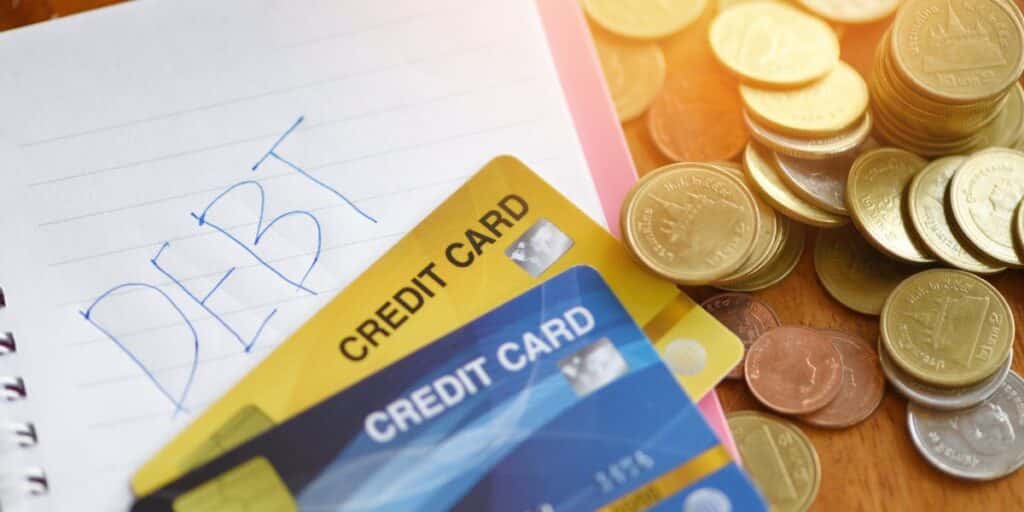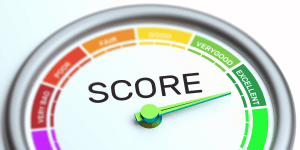Debt Management is a crucial aspect of personal finance that everyone should pay attention to. Struggling with debt can be overwhelming and stressful, but there are various options available to help you manage your debts effectively. In this article, we will discuss four key areas of debt management that you need to know to regain financial stability. These areas include credit score, debt consolidation, credit counseling, and bankruptcy. Understanding these areas will help you make informed decisions and take the necessary steps towards financial freedom. Let’s dive in and explore each one of them in detail.
Credit Score: Understanding and Managing It
Your credit score is a crucial aspect of your financial life. It is a three-digit number that tells lenders, credit card companies, and other financial institutions how likely you are to repay your debts. Generally, the higher your credit score, the more likely you are to be approved for credit and to receive favorable interest rates.

To maintain a good credit score, it’s essential to make payments on time and avoid maxing out your credit cards. It’s also important to keep an eye on your credit score regularly and to dispute any errors that may appear on your credit report.

If you’re struggling with debt, it’s essential to prioritize paying off high-interest debt, such as credit card debt, to improve your credit score. Consider working with a financial advisor or credit counselor to create a debt repayment plan that works for you.

Remember, your credit score is not set in stone. With time and effort, you can improve it and take control of your financial future. By understanding and managing your credit score, you can work towards achieving your financial goals and living a debt-free life.
Debt Consolidation: Combining Your Debt for Financial Relief

Are you feeling overwhelmed by multiple debts and high-interest rates? Debt consolidation may be the solution to your financial struggles. Debt consolidation involves taking out a single loan to pay off all your existing debts, leaving you with a single payment to make each month. This can simplify your finances and lower your overall interest rate, making it easier to manage your debt and pay it off faster.

Debt consolidation can take many forms, including balance transfer credit cards, personal loans, or home equity loans. It’s important to consider the pros and cons of each option to determine which is best for your situation. Factors such as interest rates, fees, and repayment terms should all be taken into account.

Consolidating your debt can also have a positive impact on your credit score. By simplifying your payments and lowering your interest rates, you may be able to pay off your debt faster and improve your credit utilization ratio. This can make it easier to qualify for loans and credit cards in the future.

However, debt consolidation is not a one-size-fits-all solution. It’s important to address the underlying issues that led to your debt in the first place. Without a solid plan to manage your finances and avoid future debt, consolidation may only provide temporary relief.

Overall, debt consolidation can be a valuable tool for managing your debt and achieving financial freedom. By combining your debts into a single payment and lowering your interest rates, you can simplify your finances and make it easier to pay off your debt. Just remember to approach consolidation with a solid financial plan and a commitment to long-term financial health.
Credit Counseling

Credit counseling is a service that provides guidance and support to individuals struggling with debt. The goal of credit counseling is to help individuals develop a budget and repayment plan, so they can regain control of their finances. With the help of a credit counselor, individuals can learn how to manage their money, reduce their debt, and avoid financial pitfalls in the future.
A credit counseling session typically lasts an hour and can be done in person or over the phone. During the session, the counselor will review the individual’s financial situation, including their income, expenses, and debts. Based on this information, the counselor will work with the individual to develop a personalized plan to pay off their debt. One of the benefits of credit counseling is that it can help individuals avoid bankruptcy. Bankruptcy is a last resort for those who are unable to pay their debts.
However, it can have serious consequences, including damage to an individual’s credit score and difficulty obtaining credit in the future. Credit counseling can help individuals avoid bankruptcy by providing them with the tools and resources they need to manage their debt. Credit counseling is not a one-time solution, but rather a process that requires ongoing effort and commitment.
It requires individuals to make changes in their spending habits and to stick to a budget. However, with the help of a credit counselor, individuals can develop the skills they need to achieve financial stability and independence. If you’re struggling with debt, credit counseling may be a good option for you. It can provide you with the guidance and support you need to get back on track financially. Contact a reputable credit counseling agency today to learn more about your options.
Understanding Bankruptcy

When it comes to managing debt, bankruptcy is a term that often comes up. Bankruptcy is a legal process that provides individuals, businesses, and organizations with an opportunity to eliminate or repay their debts under the protection of the federal bankruptcy court. It is usually seen as a last resort for those who have exhausted all other options in managing their debts.
Bankruptcy comes in different forms, but the two most common types are Chapter 7 and Chapter 13 bankruptcy. Chapter 7 bankruptcy, also called “liquidation bankruptcy,” is designed to wipe out unsecured debts, such as credit card balances and medical bills, while Chapter 13 bankruptcy, also known as “reorganization bankruptcy,” allows debtors to keep their assets and pay back their debts over a period of three to five years.

Filing bankruptcy can have a significant impact on a person’s credit score, making it difficult to obtain credit in the future. While bankruptcy may seem like an easy way out of debt, it’s important to consider the consequences and the long-term effects on your financial future.
Before filing for bankruptcy, it’s essential to consult with a bankruptcy attorney who can provide guidance and advice on the best course of action. They can help evaluate your situation, explain the different options available to you, and determine if bankruptcy is the right choice.

In conclusion, while bankruptcy can be a viable solution for some people struggling with debt, it’s crucial to understand the process fully before filing. Bankruptcy can have long-lasting effects on your financial future, and it should only be considered as a last resort. It’s essential to seek professional guidance and carefully weigh all your options before making any decisions.
Why Creating a Budget is Essential for Effective Debt Management

Creating a budget is one of the most important steps in effective debt management. Without a budget, it’s difficult to know where your money is going and how to prioritize your spending. Budgeting allows you to track your income and expenses, set financial goals, and make informed decisions about how to allocate your resources.
Think of a budget like a roadmap for your finances. Just as a map helps you navigate unfamiliar territory, a budget helps you navigate your financial landscape. It shows you where you’re going, how to get there, and what you need to do to stay on track. But creating a budget can be overwhelming if you’ve never done it before. Start by tracking your spending for a few weeks or a month. Write down everything you spend money on, including bills, groceries, entertainment, and other expenses.
This will give you a better understanding of where your money is going and help you identify areas where you can cut back. Once you have a clear picture of your income and expenses, it’s time to create your budget. Start by listing your sources of income and your fixed expenses, such as rent or mortgage payments, car payments, and insurance premiums.
Then, allocate the rest of your income to variable expenses, such as groceries, entertainment, and discretionary spending. Remember, your budget doesn’t have to be set in stone. It’s a living document that you can adjust as your circumstances change. The key is to stay disciplined and stick to your budget as much as possible. This will help you avoid overspending, reduce your debt, and achieve your financial goals.
In summary, creating a budget is essential for effective debt management. It allows you to take control of your finances, prioritize your spending, and make informed decisions about how to allocate your resources. So if you’re serious about getting out of debt and achieving financial freedom, start by creating a budget today.
Conclusion
In conclusion, debt management is crucial for maintaining a healthy financial life. Your credit score is an essential factor that affects your ability to get loans, credit cards, and even a job. Debt consolidation can help you simplify your payments by combining multiple debts into one, while credit counseling can provide you with guidance on managing your finances.
Bankruptcy should always be the last resort, but it can provide a fresh start for those who are overwhelmed with debt. Remember to always prioritize your debt payments, create a budget, and seek professional help if needed. With a little effort and discipline, anyone can take control of their finances and become debt-free.











